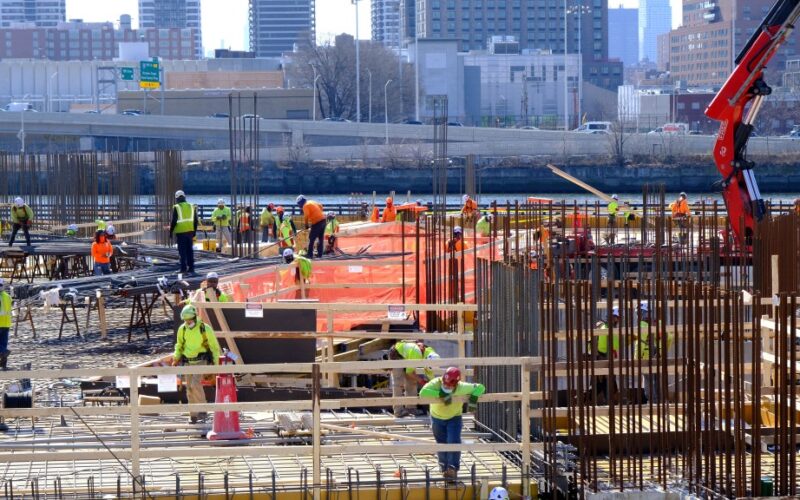This week, conversations about mental health will take place across New York City’s construction industry, bringing needed attention to an often-overlooked crisis. The industry, both the members of the Building Trades Employers Association (BTEA) and the Building and Construction Trades Council (BCTC) will take part in Construction Suicide Prevention Week, a nationwide initiative to address a crisis that continues to grow.
Each year, more than 5,000 construction workers die by suicide. That is five times higher than the number who die from jobsite accidents or injuries. Protecting worker safety means looking after both physical health on the job site and overall mental well-being.
The nature of construction work places physical demands, variable schedules, and fast-paced environments, all of which can apply added pressure on workers. When mental health is not given the same attention as physical safety, it can contribute to stress and feelings of isolation. By bringing greater awareness and support to mental health, we can help ensure a healthier, more resilient workforce.
Encouragingly, there is growing recognition of this crisis across the industry and in government. Public officials and policymakers are beginning to understand that caring for mental health is just as essential as protecting against falls or other on-site hazards.
Construction Suicide Prevention Week reflects this shift, inspiring conversations throughout the industry on how best to support workers’ well-being. Combined with emerging legislative efforts that would make mental health and suicide prevention part of mandatory safety training, this represents real progress toward changing how our city and our industry care for those who build it.
This week, a package of landmark legislation will be introduced in the New York City Council to address this growing crisis in the industry. The first bill will amend the city’s building code so that mental health and wellness, suicide prevention, and substance-misuse awareness are formally included in Site Safety Training (SST) requirements.
Each year, tens of thousands of workers complete safety training as a condition of receiving or renewing their SST card. Under the proposed law, every one of those workers will now receive at least two hours of dedicated instruction on mental health and related risks. Within months of being enacted, hundreds of thousands of workers across New York City would be better equipped to recognize warning signs, support one another, and help reduce mental health stigma.
Addressing suicide also means acknowledging the factors that contribute to it, including substance abuse. Many workers turn to substance use as a way to cope.
The U.S. Substance Abuse and Mental Health Services Administration reports that the rate of substance use disorder among construction workers is twice as high as the general adult population. A recent study by the New York City Health and Buildings Departments confirmed this reality, finding that construction workers lead all occupational groups in overdose deaths. For those who are struggling, opioid antagonists can reverse the deadly effects of opioids, offering a chance for recovery and survival.
Because overdoses can and do occur on job sites, construction workplaces are a critical setting for intervention. Fortunately, new legislation will be introduced that will require the Department of Health and Mental Hygiene to provide five opioid antagonist kits to every major building construction site. The bill would also require DOHMH to train site safety professionals in administering the medication and training workers themselves.
This package of legislation represents an urgently needed step forward. By equipping sites with life-saving tools and training, New York can directly confront the substance abuse epidemic that has devastated too many families in our industry. We strongly urge the Council to pass this legislation to protect the health and safety of New York City’s construction workforce and their families.
Together, these two measures, embedding mental health education into Site Safety Training and equipping construction sites with opioid antagonist kits, represent meaningful steps toward a safer and healthier industry. They show that New York is beginning to treat mental health and substance use with the same urgency as physical safety. Passing both pieces of legislation would not only save lives but also signal to the men and women who build our city that their well-being is a priority.
By taking these steps, New York can set a national example for how the construction industry prioritizes both physical and mental safety. Our workforce deserves nothing less.
Crowley is president & CEO of the Building Trades Employers’ Association. LaBarbera is president of the NYC and NYS Building and Construction Trades Council. Lee chairs the City Council Committee on Mental Health, Disabilities, and Addiction.








